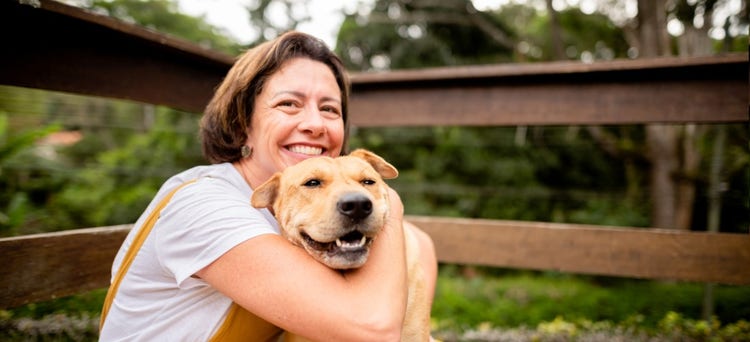
Dog Adoption Orientation: A Health-Conscious Guide
Share
For many health-conscious pet owners, the decision to adopt a dog is as much about enriching their lives as it is about ensuring the well-being of their new furry friend. Understanding the nuances of dog adoption orientation can help ensure a smooth transition for both you and your future pet. This article aims to guide you through the process, emphasizing the significance of health and wellness for both you and your adopted dog.

Why Health Matters in Dog Adoption Orientation
When considering dog adoption orientation, health should be a top priority. Adopting a dog is a lifelong commitment, and ensuring the animal's health is part of that responsibility. Not only does a healthy dog mean fewer vet visits and lower bills, but it also means a happier, more energetic companion.
For health-conscious individuals, adopting a dog provides an excellent opportunity to incorporate regular exercise into their daily routine. Dogs require walks, playtime, and mental stimulation, all of which contribute to a healthier lifestyle for both the pet and the owner.
Preparing for the Orientation Process
The first step in any successful dog adoption orientation is preparation. Understanding the specific needs of the breed you are interested in can make the transition smoother. Researching breed characteristics, health issues, and dietary needs is crucial.
Greater Good provides a comprehensive guide on what to expect during the adoption process. This includes everything from the initial application to home visits and interviews. Many health-conscious pet owners find this information invaluable as they navigate the complexities of adoption.
The Role of Nutrition in Dog Health
Nutrition plays a critical role in a dog's health and should be a focal point in the dog adoption orientation. A balanced diet can prevent many common health issues and contribute to a long, active life. Health-conscious pet owners often opt for high-quality dog food or even prepare homemade meals to ensure their pets receive the best nutrition possible.
It's important to consult with a vet to determine the best diet for your adopted dog. This will vary based on age, breed, and health status. For more information on maintaining your dog's health, you can check out Petzooli's article on dog collars that promote safety and activity during outdoor adventures.
Exercise and Mental Stimulation
Exercise is another crucial element of dog adoption orientation. Dogs, much like humans, require regular physical activity to maintain their health. Activities like walking, running, and agility training can improve cardiovascular health, build muscle, and enhance mental well-being.
Interactive toys, games, and training sessions also offer mental stimulation, preventing boredom and destructive behavior. Engaging your dog in stimulating activities not only enhances their quality of life but also strengthens the bond between you and your pet.
Integrating Your Dog into a Health-Conscious Lifestyle
Adopting a dog presents a unique opportunity to integrate your pet into a health-conscious lifestyle. From diet to exercise, every aspect of your dog's life can reflect your commitment to health and wellness.
Creating a routine that includes regular vet check-ups, grooming, and socialization is essential. These activities ensure your dog remains healthy and happy, which in turn enhances your own quality of life.
If you're looking for tips on how to introduce a new dog to your home, Petzooli offers an insightful guide on introducing a dog to your household, ensuring that both you and your pet are comfortable in the new environment.

Frequently Asked Questions
What should I expect during a dog adoption orientation?
During a dog adoption orientation, you will learn about the adoption process, meet potential dogs, and discuss your lifestyle and expectations with adoption counselors. It's an opportunity to ensure you find a dog that fits well with your health-conscious lifestyle.
How can I ensure my adopted dog's health?
Ensuring your adopted dog's health involves regular vet visits, a balanced diet, and sufficient exercise. Consulting with a vet about the specific needs of your dog and following their recommendations is crucial.
What are some ways to keep my dog mentally stimulated?
Mental stimulation can be achieved through interactive toys, puzzle games, training, and socialization with other dogs. Regularly changing the types of activities and introducing new challenges can keep your dog engaged and happy.
For more advice on adopting dogs, you can visit Petfinder's puppies for adoption page for additional resources and support.
This article contains affiliate links. We may earn a commission at no extra cost to you.
